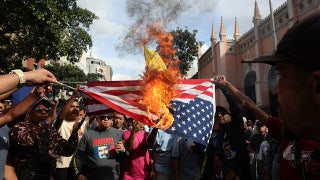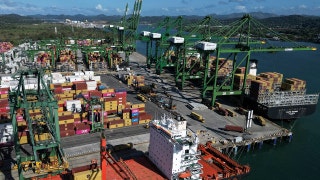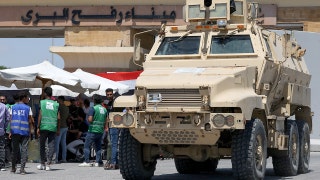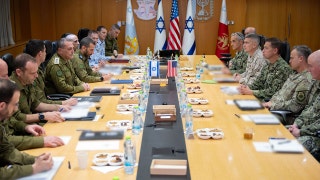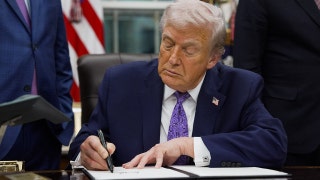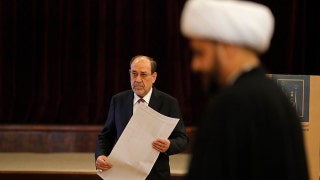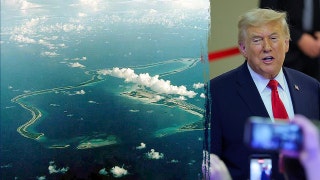KUALA LUMPUR, Malaysia – Regardless of how Syria does in its World Cup playoff against Australia, the team has helped football knock fighting out the headlines for a while in their war-torn country.
The Syrians are still in contention to qualify for the World Cup for the first time, and the journey to their biggest match so far has captured domestic and international attention.
Unable to play on home soil, the Syrians will "host" Australia at Malacca, Malaysia on Thursday in the first leg of an Asian playoff. The victor in the two-match series — the return match takes place in Sydney next Tuesday — will take on the fourth-place team from CONCAFAF, the confederation that consists of North and Central America and the Caribbean, in November. The winner of that will secure a spot at Russian 2018.
"We have worked so hard in qualification for the World Cup," Syria striker Omar Khribin told The Associated Press. "The spirit in the team is very good. We know that we still have work to do, but we are ready for whatever happens."
Syria placed third in Group A behind Iran and South Korea in the third round of Asian qualification, losing three of its 10 games. The top two teams in each group secured direct entry to next year's World Cup leaving the third-place teams — Australia finished behind Japan and Saudi Arabia in its group — vying for an alternative route to Russia.
Just as the nation has been torn apart by war and either support or opposition to Syrian President Bashar Assad, the national team has also been split, leading to some players skipping important qualifiers until recently. Within the team, though, things seem to be coming together.
Firas Al Khatib had been absent from the team until earlier this year when he returned along with striking colleague Omar al-Soma. Neither player has given their reasons as to why their exile ended except to say it's related to sports rather than politics.
"The important thing is that the team is determined to try and qualify for the World Cup," Khribin said. "We have played against some very strong teams so far such as South Korea, Iran and Uzbekistan. We competed well against them and proved that we are also a strong team."
Syria was regarded as an outsider at the start of the third round of qualification, and just two goals from the first seven games seemed to confirm that perception.
But after starting out as hard to beat and defensive, the Syrian team became more attacking in the latter stages of qualifying. The return of al-Soma and Al Khatib made a difference to give Syria one of the most dangerous forward lines in Asia, tallying seven goals in its final three games.
Two of those were in the make-or-break last game against Group A winner Iran in Tehran, where al-Soma scored deep in stoppage time to secure a 2-2 draw against a lineup that hadn't conceded any goals in the previous nine games in qualification.
That result was enough to secure the match against Australia, which finished behind Saudi Arabia on goal difference.
Players, with "Syria" rather than names emblazoned across the back of their red jerseys, sank to their knees on the turf in Tehran to celebrate.
In Syria, thousands of dancing fans filtered onto the streets of Damascus chanting "Syria" and waving the country's flags.
But while Syrians were delighted to reach the playoff stage, supporters of Asian Cup champion Australia were less enthused. The Socceroos have appeared at the last three World Cups and, despite just one loss in the qualifying campaign, coach Ange Postecoglou has come under heavy criticism for not ensuring an automatic spot in Russia.
"I have not lost (faith) in what I do," Postecoglou said as he prepared this week to face Syria, which is unbeaten in five 'home' games in Malaysia. "We watched all their qualifying games. We know what they bring to it.
"It's match play against an opponent over two games knowing that it's do-or-die scenario. They managed to score goals late in games to get themselves results and obviously they are hard to break down."
Syria midfielder Mohammed Zaher Midani was quoted as saying on the Asian Football Confederation's website that his team would had the ingredients to beat the higher-profile Socceroos.
"Australia may have many prominent players who are known for their individual talents, but we have the enormous potential that comes from performing as a group, as well as the individual skills of our players," Midani said. "And we have a huge motivation — which is to make the Syrian people happy."
